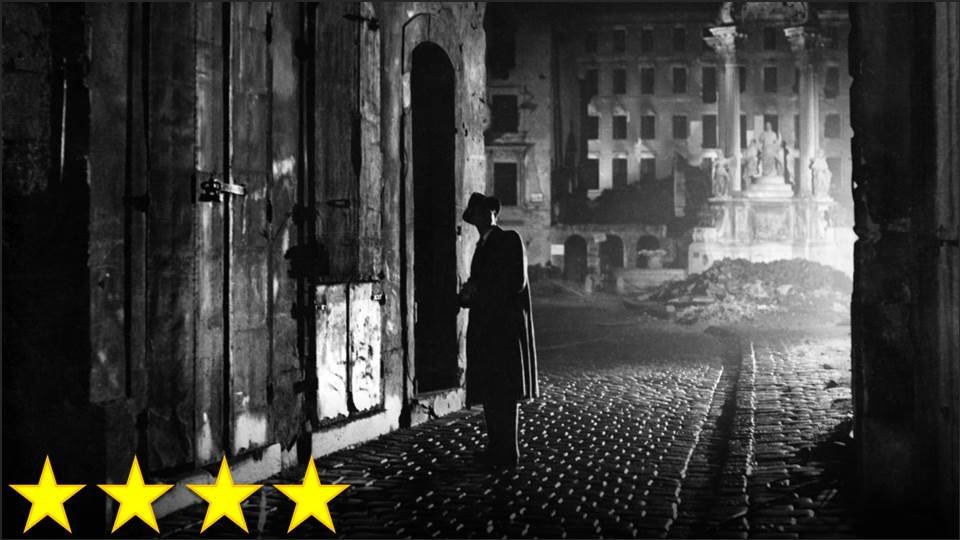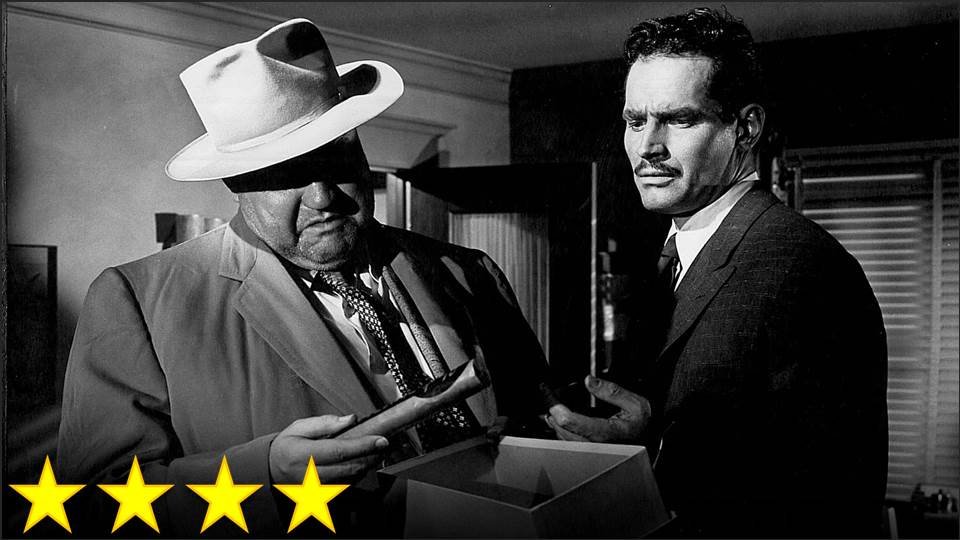Have you ever seen one of those movies that pulls such a clever trick on you with its slick, surprising writing that you just sit back, swallow your pride, and give it a nice, slow clap?
This is The Third Man, which is one of those odd films known as a “British Noir.” It’s within the cinematic territory of film noir, most certainly, yet it comes from another country, which goes against some definitions of what can be counted as real film noir. It’s really a shame, too – I want to count it as film noir because I think it’s the best film noir. I’ve written before about how film noir is my kind of genre, with over-the-top drama, cynical representations of humanity, and an atmosphere of extreme, theatrical darkness, but there are very few films in the genre that I really enjoy as movies. Sure, nearly each and every one I’ve seen has looked great, but the stories, characters, and general logical structures have often been severely lacking, so I can really only think of two or three films noir that I can say I love. Of course, with the addition of The Third Man, it’s three or four, because this is almost certainly my favorite thus far.
It may seem like I’ve been so disappointed by films noir in the past (see Detour) that I could very easily be pleased by a film in the genre that just had a decent story, good plot twists, smart dialogue, and enjoyable characters, but I actually came into this film with high expectations. The cinematographer on the short film I’m working on at the moment told me it’s her favorite movie of all time, which is an odd thing to hear about a 1940s British drama from a millennial college student. I was ready to heavily scrutinize this film, but there’s really so little here to hate. The characters are stronger here than they are in nearly any noir I’ve seen since Double Indemnity, which is probably my favorite American noir, and the visuals here (including atmosphere, camera angles, lighting, editing, location choices – all of it) may be the best I’ve seen in any noir since Key Largo, which is possibly my second-favorite. I love the writing of this movie particularly because it’s so intelligent in the way it delivers information and transitions to new scenarios, consistently throwing the viewers off guard while keeping them engaged.
The one hinderence to this sense of engagement, however, is the pacing. Some of the film has excellent pacing, but much of it seems to lag, making for several scenes that are just plain boring. Even the ending, which I think is fairly difficult to get wrong when it’s been set up so perfectly such that any almost any imaginable ending after the climax’s conclusion would have provided satisfactory closure, is remarkably boring. I imagine that the slow pacing is largely for deliberate, artistic reasons, but it’s still a major fault on the movie’s part for me because it pulls me out of the story – just as I get sucked into the emotions of the characters, a tedious moment arises that makes me zone out and miss information. This is very frustrating, and what makes it so strange and disappointing is the film’s regular use of rapid, quick-cutting montage to add intensity to the scene, which should pick up the pace, but actually seems to hold it back. I think with just a little more focus on the plot, this film would have gotten a higher rating out of me.
All that being said, I don’t think I’ve ever been so impressed by a movie in this style/genre before, and I tip my hat to Carol Reed and Graham Greene for telling one of the far best mystery stories I’ve ever heard.

